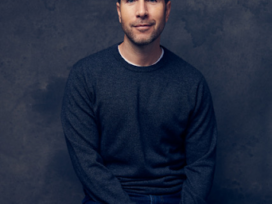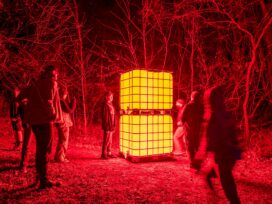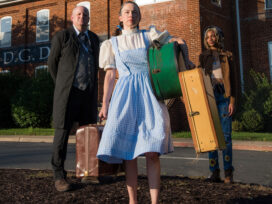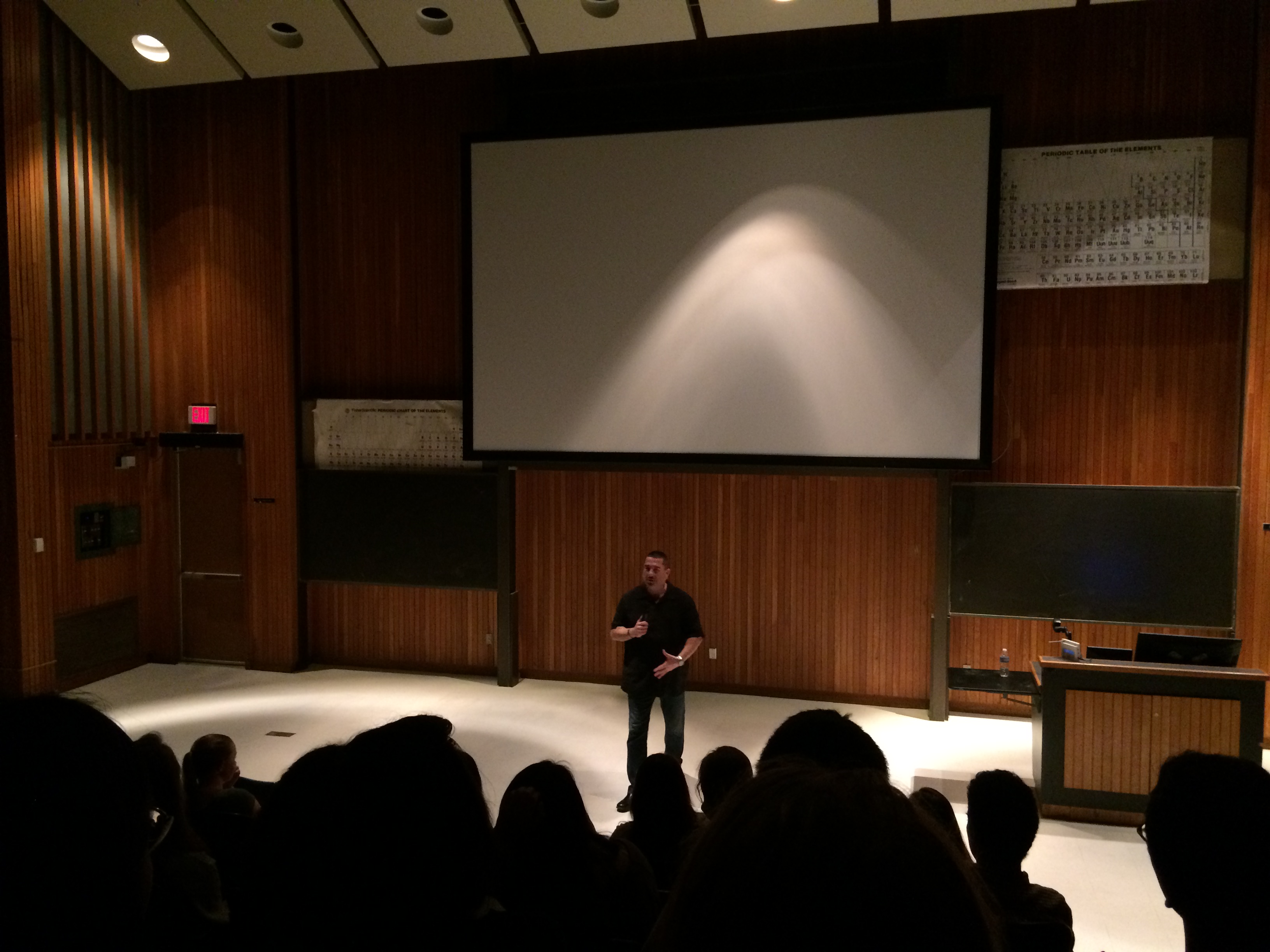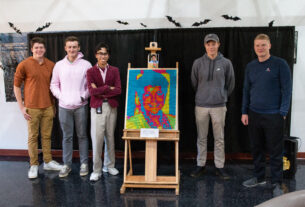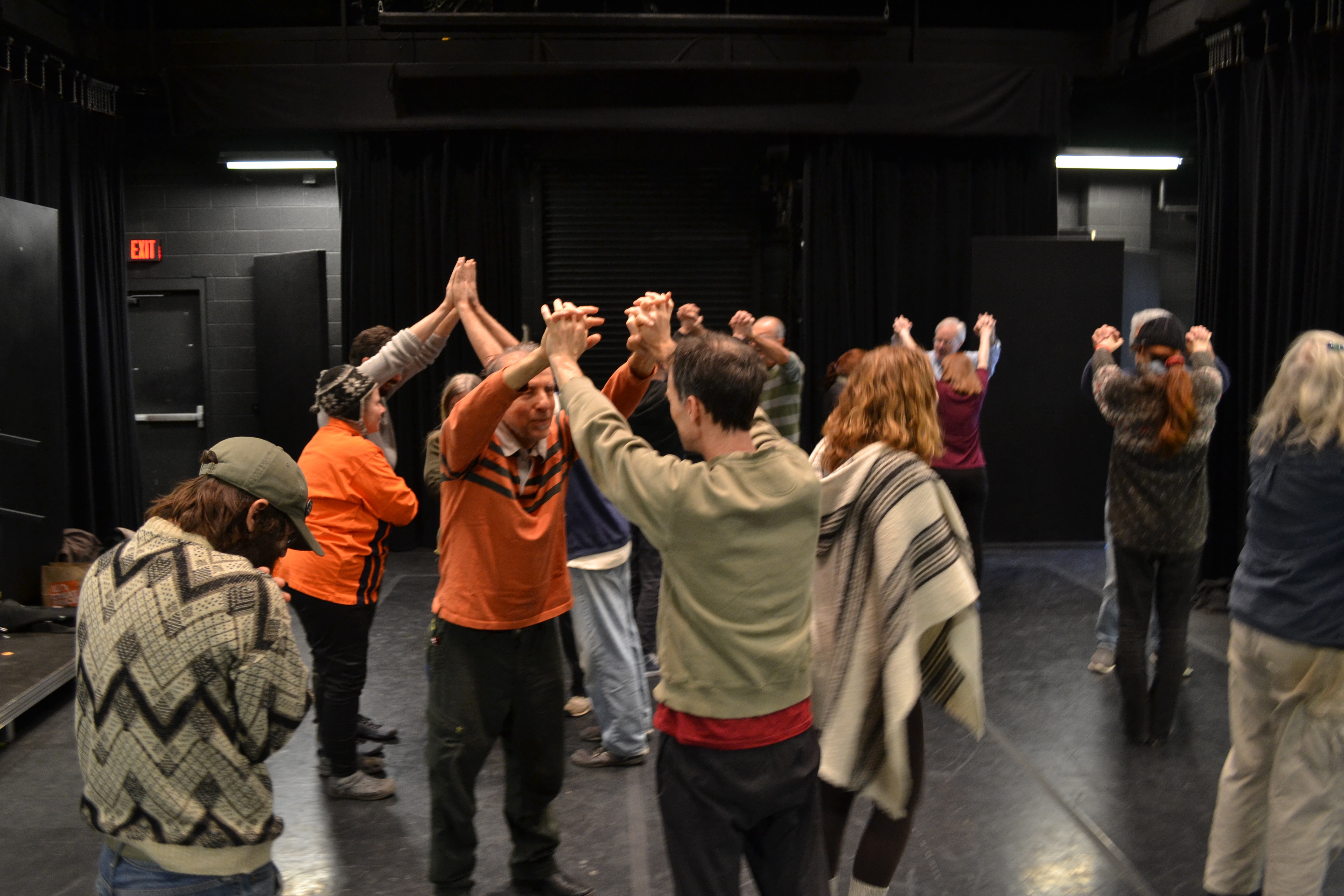
Theatre of the Oppressed Seeks Solidarity
Jake DeLaurier, staff writer
With everything facing our world today, from political unrest, to the current refugee crises, and the uncertainty of what the future holds, it would not be controversial to say that we are living in chaotic times. In response to such times, there is the Theatre of the Oppressed. Originally created by Brazilian theatre director and activist Augustus Bole in the 1960’s, Theatre of the Oppressed examines the medium of theatre and how such examinations can have an impact on communities and the world as a whole. This is done by examining cultural ideas and seeing how these ideas can lead to a result of unrest in societies.
Drama therapist Mecca Burns and Assistant Professor of Theatre Arts Brad Stoller led their own Theatre of the Oppressed Workshop on Feb. 4 from 10 a.m. to 4 p.m.
“Mecca and I have offered this for a fourth time now, but as the political climate is so charged right now, people are finally taking notice of these types of offerings where people can engage in dialogue through artistic means. This type of theatre is used through most of the world (rarely in this country, as people are less likely to see the point of civic engagement for several reasons – the forces of power are so obscure and confusing – people in general believe that doing something to rock the boat will only cause them harm, because they have it relatively good. etc.),” said Stoller.
When asked why people should attend the event, Stoller said people should attend, “For finding a voice and hearing the concerns, voices and feelings of others in a non-discursive way. The body is our main instrument for discussion and therefore we bypass much of the propaganda of the media and other images that are trying to control our choices. There is a chance for entering into issues in ways that create new perspectives in everyone involved. Plus it is a lot of fun, enjoyable to use your body and voice fully and playfully which opens everyone to areas of listening to each other that don’t exist when we are closed off quite literally in our bodies and voices.”
Once the event started, the audience of roughly two dozen were asked to get up and form a circle in which Stoller stated that the focus was on solidarity. Burns asked the audience questions and, if it applied to them, they would step inside the middle of the circle. The first question asked was if any of the audience members saw the flyer that advertised the event.
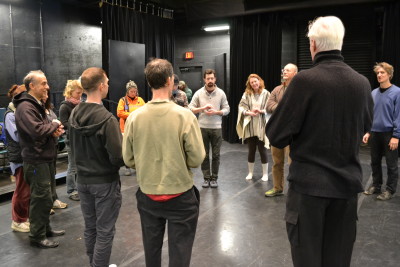
The questions soon became more serious once the topic of last year’s presidential election and its aftermath were brought up. Questions ranged from if anyone was shocked by the election results to if they were worried about the recent travel ban. The response had almost everyone stepping in the middle of the circle.
After that, the audience started to play theatre games. The first was a game called mirroring. This consisted of the audience mimicking the movements and noises of other audience members.
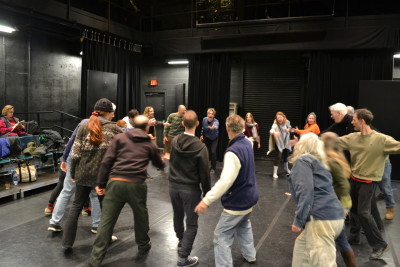
The second game involved the audience splitting into groups of two. The first group put their hands together to form a bridge and made rhythmic sounds. The second group had to close their eyes and listen to the rhythmic sounds so they could walk under the bridge. Once they walked under the bridge, the group forming the bridge would make a celebration sound.
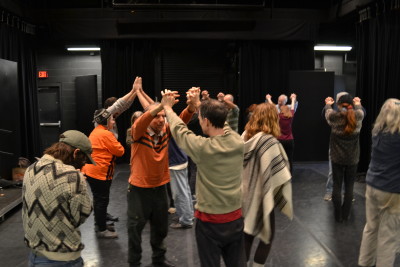
One of the last activities before lunch was a discussion of Martin Luther King Jr.’s six principles of nonviolence. The six principles of nonviolence are a way of life for courageous people: nonviolence seeks to win friendship and understanding, nonviolence seeks to defeat injustice not people, nonviolence holds that suffering can educate and transform, nonviolence chooses love instead of hate, and nonviolence believes that the universe is on the side of justice.
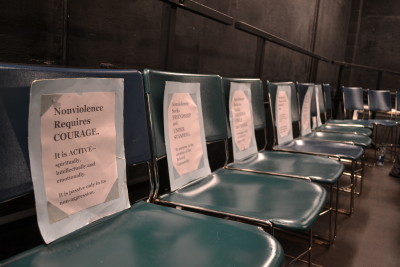
The group later discussed how these principles can be used today.


